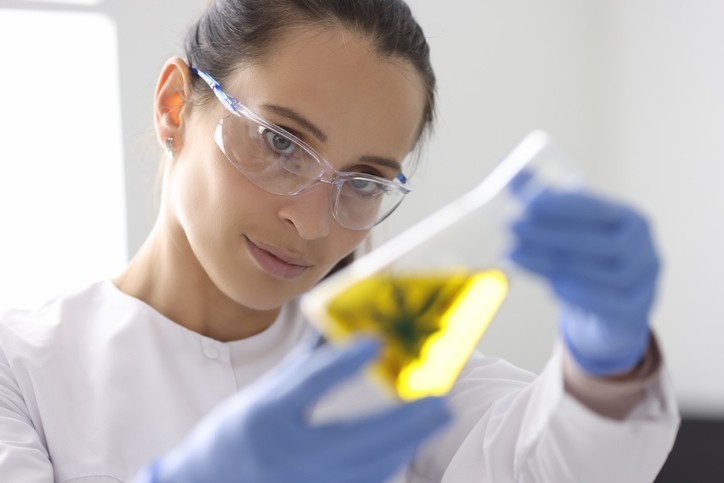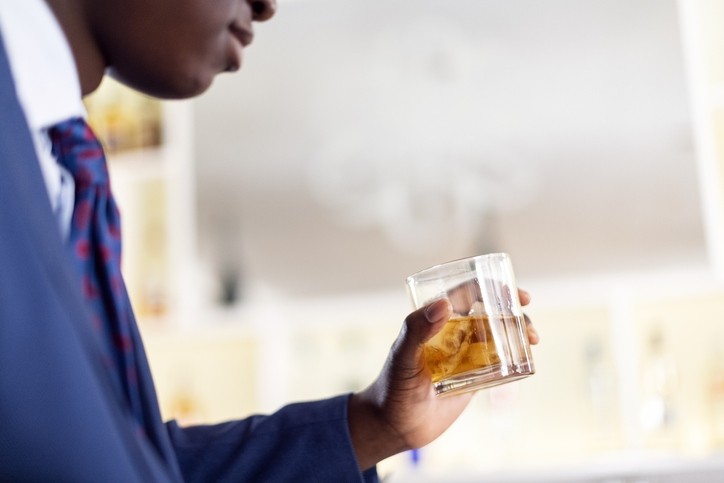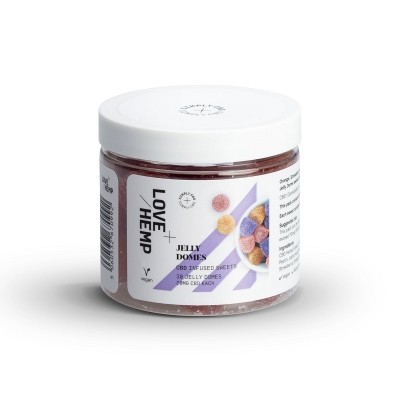'The health benefits are becoming clearer... the future looks very exciting: What's the CBD sector's next play?

People with fibromyalgia – a long-term and difficult-to-treat condition that causes pain all over the body – are switching from opioids to CBD to manage symptoms in ‘significant’ numbers, a US study has just revealed.
The researchers noted that much of the widespread use of CBD is occurring without physician guidance and in the absence of relevant clinical trials. "Even with that lack of evidence, people are using CBD, substituting it for medication and doing so saying it's less harmful and more effective," one said.
This latest study illustrates both the huge promise presented by CBD and one of the factors limiting its development – namely a lack of hard evidence to back up its perceived health benefits that so excite consumers and manufacturers.
CBD is oil or powder derived from the cannabis plant that can be added as an ingredient in food and beverages. It doesn’t get you high. Studies continue to show it may be an effective treatment for epilepsy and may prove to be an option for, among other things, managing anxiety, insomnia, inflammation, arthritis, and even HIV symptoms. But these studies are as yet inconclusive. With the exception of Epidiolex, the first and only prescription CBD medicine approved by the FDA in the US which is used to treat seizures, no medical claims can yet be made on any products.
Regulation has also been a grey area which has stymied NPD and arguably made consumers cagey. In the UK, companies selling CBD products were told they needed to submit in-depth Novel Foods applications to the Food Standards Agency (FSA), encompassing detailed and costly toxicology and bioavailability data, by March 2021. At the beginning of the year, the European Commission abandoned plans to classify non-synthetic CBD as a narcotic and resumed, like the UK, Novel Food applications for edible CBD products.
These moves were designed to improve the quality of CBD products on shelves. But some complain there are still unregulated, less effective products still on the market because of the expense and length of time it takes to navigate the Novel Foods process. From around 800 in total, it’s believed a few hundred applications have been so far rejected.

‘Innovation is going to be key going forward’
That said, the Association for the Cannabinoid Industry (ACI), which represents several of the largest CBD companies operating in the UK, is confident the regulatory confusion is mostly behind us. It is bullish on the prospect that a safe, legal and regulated industry can be created in the country.
It claims that the UK market is now the world’s second largest behind the US, with the most evolved regulatory framework in the world for CBD. It estimates the sector will generate £690 million in annual sales this year, above a previous forecast of £526 million. That’s down to the pandemic, which it said accelerated demand for CBD among stressed out and sleep deprived consumers.
The ACI hails CBD as a highly versatile ingredient, which, if used in the correct way, can be put into a wide variety of food and beverage products. This means it can be incorporated into the public's everyday dietary habits in foods that are consumed regularly, expanding the market even further.
According to the ACI, it makes sense for big food companies to be reaching into this industry. It offers a ‘huge financial opportunity’. These companies are also likely to have the technical abilities to create some really innovative and special products and stand out from the crowd.
ACI Regulatory and Compliance Lead Parveen Bhatarah said improved regulation of CBD products means innovation will be key going forward. Regulation is sometimes seen as complicated, she explained, but is actually positive, ensuring a trustworthy and safe industry.
“You need to know your product inside out,” she said. Brands need to provide extensive details on CBD’s efficacy, solubility, bioavailability and interaction with other ingredients, she explained.
The FSA recommends adults take no more than 70mg of CBD a day. Suppliers therefore now need to be clear on what amount will actually be absorbed by the end user. In some products, most of the CBD will be destroyed before it reaches the bloodstream. "Any product that wants to be sustainable will need to make sure they have evidence-based data behind it,” said Bhatarah. “Without that, you're going to see a big filtering out of these products... a lot of small brands have entered for the sake of it.”
Better regulation, she added, will further help tackle the stigma surrounding CBD that can still exist among consumers and manufacturers.
An everyday product or a niche one?
What food and beverage products best suit CBD? UK-based Tenacious Labs, an international cannabinoid group looking to develop a new wave of health, wellbeing and recreational brands, reckons the CBD industry is going to closely resemble the premium spirits sector. It sees CBD as something to use to wind down at the end of the day – much like someone might with a whiskey or a gin and tonic. It therefore sees CBD beverages challenging the premium mixer market, taking on the likes of Fever-Tree, and also potentially tapping into the surging low-to-no sector.
The ACI believes CBD is more multipurpose than that. "CBD as an ingredient is incredibly versatile and I think that's why it's appealing and why these big companies could really utilise it for their benefit,” said ACI Member Manager Laura Williamson. “It doesn't have a flavour or a texture so it can be used in any kind of product that they're looking at launching.” She added the ingredient is not something that has to be taken every day to be effective, though others disagree this is the case, arguing it needs to be consumed at a specific dosage over a sustained period.
But CBD does have formulation challenges. Manufacturers, according to the ACI, have yet to fully appreciate and make use of CBD’s hydrophilic qualities. According to Bhatarah, a greater understanding of both CBD’s hydrophilic and lipophilic qualities will allow brands to better know how to put the ingredient into different products and still be effective.
“A small brand doesn't necessarily have that understanding or money to be able to create products in that way that they know will be effective,” she said. “For example, if you were to create a CBD cocoanut water, you're going to know how to utilise the CBD molecule so that it will be soluble and bioavailable in that water. Whereas if you're wanting to launch it into a cereal bar you might want to make sure it's lipophilic and can go into the fats in that cereal bar.”
Bhatarah therefore agrees, like Tenacious labs, that cracking the challenge of water-soluble CBD would be a game changer. "If you can increase the bioavailability and the solubility, you have endless opportunities. You can also have your own IPs on those areas. That is where the opportunities for the big players lies.”
She also expects a greater understanding of cannabimimetics – or how CBD can interact with your endocannabinoid system -- will foster better CBD products -- possibly even new types of food products entirely. “There's a lot of creativity and imagination that can be used to create new type of products,” she said.
‘Demand will rise exponentially’: Robertet
France-based Robertet Group was the first flavour and fragrance company to venture into the CBD space. The supplier is currently waiting for its UK and European Novel Foods applications to be processed. It believes regulatory confusion has been a bottleneck to the CBD industry. Now this is on the verge of being overcome, it expects the market to mature.
“There are a lot of garage suppliers in the UK who can't afford to compete a full and thorough dossier or they've got a supply of CBD which isn't in line with the safety guidance set out by the FSA,” said Ross MacPherson, UK Sales Manager at Robertet Group. “What will happen is that the market will become dominated by a few larger suppliers.”
Robertet’s focus is in the dietary supplement sector. It supplies CBD products in various forms of isolates and distillates to its well-known customers in the health and beauty space. “Our CBD materials are already of high demand as the market expands. Once more suppliers begin to receive Novel Food validation the demand for CBD will increase further as more materials will prove to be in line with the regulation,” said MacPherson.
“What we've done is apply with as many formulas as possible to make sure they can be used in as many different dosage formats as possible,” he continued. “We have also included our Natur-Cell technology within our application, which is where we use technology to spray dry CBD onto inulin so that our CBD material can be used in chocolates and food ingredients. We’ve also created a CBD emulsion so that our CBD can be used in drinks, shots and any kind of beverage to make sure we cover the entire scope of the market and try and make sure that any possibility for what our customer wants to create they can do.”
MacPherson expects end products to mainly be nutraceutical, not mainstream food products.
“I'd imagine that CBD will follow the trend of the US in that it will become a far more popular ingredient. The possibilities are endless, although it may be some time before we start to see CBD within mainstream foods like pizza and yoghurts,” he said. “Sports nutrition is clearly another key market as we start to see more CBD brands launching with a focus on athletes. In terms of the nutracetuicals market as a whole, the UK CBD market is already worth the Vitamin C and D industries combined.’’
CBD is an ‘incredible powerful ingredient’ he added. “Consumer’s understanding of the ingredient will develop over time and we will start to see more dosage formats become popular over time. While CBD might not add any real benefit in terms of taste or texture, the health benefits are becoming clearer and the future for CBD in the UK looks very exciting.”






























